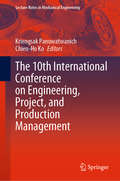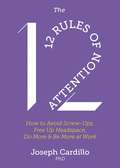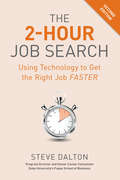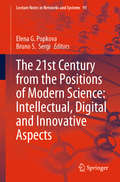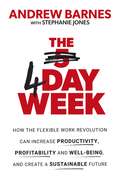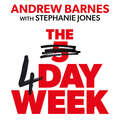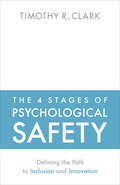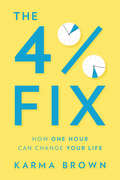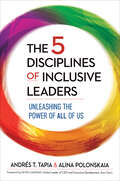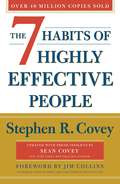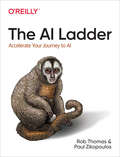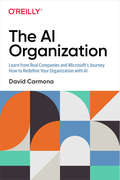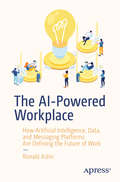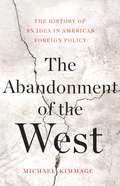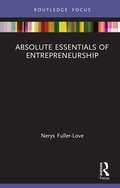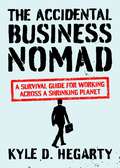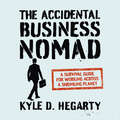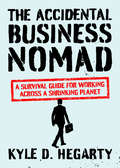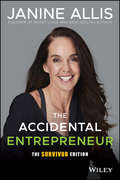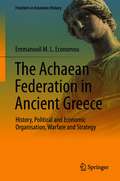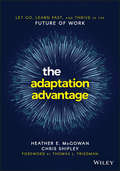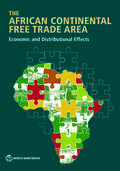- Table View
- List View
The 10th International Conference on Engineering, Project, and Production Management (Lecture Notes in Mechanical Engineering)
by Kriengsak Panuwatwanich Chien-Ho KoThis book gathers the proceedings of the EPPM 2019 conference, and highlights innovative work by researchers and practitioners active in various industries around the globe. Recent advances in science and technology have made it possible to seamlessly connect and integrate various elements of engineering systems, and opened the door for innovations that have transformed how we live and work. While these developments have yielded enhanced efficiency and numerous improvements in our current practices, the problems caused by the increased complexity of these integrated systems can be extremely difficult. Accordingly, solving these problems involves applying cross-disciplinary expertise to address the heterogeneity of the various elements inherent in the system. These proceedings address four main themes: (I) Smart and Sustainable Construction, (II) Advances in Project Management Practices, (III) Toward Safety and Productivity Improvement, and (IV) Smart Manufacturing, Design, and Logistics. As such, they will be of interest to and valuable to researchers and practitioners in a range of industries seeking an update on the translational fields of engineering, project, and production management.
The 12 Rules of Attention: How to Avoid Screw-Ups, Free Up Headspace, Do More & Be More At Work
by Joseph CardilloHow to self-regulate and train your brain's attentional mechanism for faster, more accurate, high-quality performance at work.Do you feel like you're "crushing it?" How productive, happy and fulfilled do you feel each day at your job?You might ask what attention has to do with it. The answer may help fix a wide range of ongoing workplace concerns, including workplace error.Simply put, attention is connected to every single thing you think, feel and do at work. It's almost impossible to imagine, but by the end of this book you'll understand how that is, and you'll be tapping into your attentional system and regulating it to your highest advantage.You'll learn how to:* Use your entire attentional system, beyond just focus* Avoid fading out * Relieve data overflow, internal and external distraction * Use "at a glance" mental capacity to "catch" more desired detail * Regulate the brain's automatic, high-speed attention triggers and use them to your advantage* Turn your cell phone into a focus-enhancing device.The 12-Rules of Attention shows you how to train your attention to sharp, accurate, high definition... and keep it there.
The 2-Hour Job Search, Second Edition: Using Technology to Get the Right Job Faster
by Steve DaltonUse the latest technology to target potential employers and secure the first interview--no matter your experience, education, or network--with these revised and updated tools and recommendations.&“The most practical, stress-free guide ever written for finding a white-collar job.&”—Dan Heath, coauthor of Switch and Made to Stick Technology has changed not only the way we do business, but also the way we look for work. The 2-Hour Job Search rejects laundry lists of conventional wisdom in favor of a streamlined job search approach that produces results quickly and efficiently. In three steps, creator Steve Dalton shows you how to select, prioritize, and make contact with potential employers so you can land that critical first interview.In this revised second edition, you'll find updated advice on how to efficiently surf online job postings, how to reach out to contacts at your dream workplace and when to follow up, and advice on using LinkedIn, Indeed, and Google to your best advantage. Dalton incorporates ideas from leading thinkers in behavioral economics, psychology, and game theory, as well as success stories from readers of the first edition.The 2-Hour Job Search method has proven so successful that it has been shared at schools across the globe and is a formal part of the curriculum for all first-year MBAs at Duke University. With this book, you'll learn how to make it work for you too.
The 21st Century from the Positions of Modern Science: Intellectual, Digital and Innovative Aspects (Lecture Notes in Networks and Systems #91)
by Elena G. Popkova Bruno S. SergiThese proceedings gather the best papers presented at the “10th International Scientific and Practical Conference – the 21st Century from the Positions of Modern Science: Intellectual, Digital and Innovative Aspects,” which was organized by the non-profit organization “Institute of Scientific Communications.” The conference took place on May 23–24 in Nizhny Novgorod, Russia, with support from Minin Nizhny Novgorod State Pedagogical University. The chief advantage of these proceedings are their multidisciplinary character – they include articles and empirical studies addressing various fields, including economics, the social sciences, and law. Accordingly, the target audience is broad, covering scholars, researchers, independent experts, entrepreneurs, and government workers, who are interested in issues concerning: measuring and accelerating socio-economic development; the formation and evolution of the digital society and digital economy; the role of economic systems and economic subjects in the 21st-century technological revolution (the fourth industrial revolution); development and implementation of AI; development and application of intellectual resources in economic activities; and innovations in the economy.
The 4 Day Week: How the Flexible Work Revolution Can Increase Productivity, Profitability and Well-being, and Create a Sustainable Future
by Andrew BarnesSHORTLISTED FOR THE BUSINESS BOOK AWARDS 2021In The 4 Day Week, entrepreneur and business innovator Andrew Barnes makes the case for the four-day week as the answer to many of the ills of the 21st-century global economy. Barnes conducted an experiment in his own business, the New Zealand trust company Perpetual Guardian, and asked his staff to design a four-day week that would permit them to meet their existing productivity requirements on the same salary but with a 20% cut in work hours. The outcomes of this trial, which no business leader had previously attempted on these terms, were stunning. People were happier and healthier, more engaged in their personal lives, and more focused and productive in the office. The world of work has seen a dramatic shift in recent times: the former security and benefits associated with permanent employment are being displaced by the less stable gig economy. Barnes explains the dangers of a focus on flexibility at the expense of hard-won worker protections, and argues that with the four-day week, we can have the best of all worlds: optimal productivity, work-life balance, worker benefits and, at long last, a solution to pervasive economic inequities such as the gender pay gap and lack of diversity in business and governance. The 4 Day Week is a practical, how-to guide for business leaders and employees alike that is applicable to nearly every industry. Using qualitative and quantitative data from research gathered through the Perpetual Guardian trial and other sources by the University of Auckland and Auckland University of Technology, the book presents a step-by-step approach to preparing businesses for productivity-focused flexibility, from the necessary cultural conditions to the often complex legislative considerations. The story of Perpetual Guardian's unprecedented work experiment has made headlines around the world and stormed social media, reaching a global audience in more than seventy countries. A mix of trenchant analysis, personal observation and actionable advice, The 4 Day Week is an essential guide for leaders and workers seeking to make a change for the better in their work world.
The 4 Day Week: How the Flexible Work Revolution Can Increase Productivity, Profitability and Well-being, and Create a Sustainable Future
by Andrew BarnesSHORTLISTED FOR THE BUSINESS BOOK AWARDS 2021In The 4 Day Week, entrepreneur and business innovator Andrew Barnes makes the case for the four-day week as the answer to many of the ills of the 21st-century global economy. Barnes conducted an experiment in his own business, the New Zealand trust company Perpetual Guardian, and asked his staff to design a four-day week that would permit them to meet their existing productivity requirements on the same salary but with a 20% cut in work hours. The outcomes of this trial, which no business leader had previously attempted on these terms, were stunning. People were happier and healthier, more engaged in their personal lives, and more focused and productive in the office. The world of work has seen a dramatic shift in recent times: the former security and benefits associated with permanent employment are being displaced by the less stable gig economy. Barnes explains the dangers of a focus on flexibility at the expense of hard-won worker protections, and argues that with the four-day week, we can have the best of all worlds: optimal productivity, work-life balance, worker benefits and, at long last, a solution to pervasive economic inequities such as the gender pay gap and lack of diversity in business and governance. The 4 Day Week is a practical, how-to guide for business leaders and employees alike that is applicable to nearly every industry. Using qualitative and quantitative data from research gathered through the Perpetual Guardian trial and other sources by the University of Auckland and Auckland University of Technology, the book presents a step-by-step approach to preparing businesses for productivity-focused flexibility, from the necessary cultural conditions to the often complex legislative considerations. The story of Perpetual Guardian's unprecedented work experiment has made headlines around the world and stormed social media, reaching a global audience in more than seventy countries. A mix of trenchant analysis, personal observation and actionable advice, The 4 Day Week is an essential guide for leaders and workers seeking to make a change for the better in their work world.
The 4 Day Week: How the Flexible Work Revolution Can Increase Productivity, Profitability and Well-being, and Create a Sustainable Future
by Andrew BarnesSHORTLISTED FOR THE BUSINESS BOOK AWARDS 2021In The 4 Day Week, entrepreneur and business innovator Andrew Barnes makes the case for the four-day work week as the answer to many of the ills of the 21st-century global economy. Barnes conducted an experiment in his own business, the New Zealand trust company Perpetual Guardian, and asked his staff to design a four-day week that would permit them to meet their existing productivity requirements on the same salary but with a 20% cut in work hours. The outcomes of this trial, which no business leader had previously attempted on these terms, were stunning. People were happier and healthier, more engaged in their personal lives, and more focused and productive in the office. The world of work has seen a dramatic shift in recent times: the former security and benefits associated with permanent employment are being displaced by the less stable gig economy. Barnes explains the dangers of a focus on flexibility at the expense of hard-won worker protections, and argues that with the four-day week, we can have the best of all worlds: optimal productivity, work-life balance, worker benefits and, at long last, a solution to pervasive economic inequities such as the gender pay gap and lack of diversity in business and governance. The 4 Day Week is a practical, how-to guide for business leaders and employees alike that is applicable to nearly every industry. Using qualitative and quantitative data from research gathered through the Perpetual Guardian trial and other sources by the University of Auckland and Auckland University of Technology, the book presents a step-by-step approach to preparing businesses for productivity-focused flexibility, from the necessary cultural conditions to the often complex legislative considerations. The story of Perpetual Guardian's unprecedented work experiment has made headlines around the world and stormed social media, reaching a global audience in more than seventy countries. A mix of trenchant analysis, personal observation and actionable advice, The 4 Day Week is an essential guide for leaders and workers seeking to make a change for the better in their work world.
The 4 Stages of Psychological Safety: Defining the Path to Inclusion and Innovation
by Timothy R. ClarkThis book is the first practical, hands-on guide that shows how leaders can build psychological safety in their organizations, creating an environment where employees feel included, fully engaged, and encouraged to contribute their best efforts and ideas.Fear has a profoundly negative impact on engagement, learning efficacy, productivity, and innovation, but until now there has been a lack of practical information on how to make employees feel safe about speaking up and contributing. Timothy Clark, a social scientist and an organizational consultant, provides a framework to move people through successive stages of psychological safety. The first stage is member safety-the team accepts you and grants you shared identity. Learner safety, the second stage, indicates that you feel safe to ask questions, experiment, and even make mistakes. Next is the third stage of contributor safety, where you feel comfortable participating as an active and full-fledged member of the team. Finally, the fourth stage of challenger safety allows you to take on the status quo without repercussion, reprisal, or the risk of tarnishing your personal standing and reputation. This is a blueprint for how any leader can build positive, supportive, and encouraging cultures in any setting.
The 4% Fix: How One Hour Can Change Your Life
by Karma BrownHow to find guilt-free time for what you really want to do, and why it matters Do you feel like you’re always busy, even as your to-do list continues to grow?Do you think you can’t keep up as it is, let alone add another thing to your plate? An award-winning journalist, avid reader and new mom, Karma Brown dreamed of writing her first novel. But between diapers and tight deadlines, how could she? Like so many of us, she felt stretched taut and hyper-scheduled, her time a commodity over which she had lost control. For Brown, the answer to this problem was to rise earlier every day and use that time to write. Although she experienced missteps along the way, after committing to her alarm clock and an online community of early risers, she completed a debut novel that became a national bestseller.In The 4% Fix, Karma Brown reveals the latest research about time management and goal-setting and shares strategies that have worked for her as well as for others. Refreshingly, her jargon-free approach doesn’t include time-tracking spreadsheets, tips on how to squeeze in yoga exercises while cooking dinner, or methods that add bulk to those never-ending lists. How will you use this one hour—only 4% of your day—to change your life?
The 5 Disciplines of Inclusive Leaders: Unleashing the Power of All of Us
by Alina Polonskaia Andrés T. TapiaDiversity initiatives are falling short. This book shows leaders how to develop the skills needed to build sustainably inclusive organizations using a tested, research-based model developed by the global organizational consulting firm Korn Ferry. According to the journal Human Resource Management, companies are spending over $8 billion a year on diversity programs. Yet today, the senior leadership teams at Fortune 500 companies are far from mirroring the diversity of its workforce and its customers. Andrés Tapia and Alina Polonskaia, senior leaders at Korn Ferry, argue that to build sustainable diversity and inclusion, organizations need to have inclusive leaders at all levels.In this book, Tapia and Polonskaia draw on Korn Ferry's massive database of 3 million leadership assessments to reveal the essential qualities of inclusive leaders. They discuss the personality traits these leaders share and detail how to develop what they call the five disciplines of inclusive leadership: building interpersonal trust, integrating diverse perspectives, optimizing talent, applying an adaptive mindset, and achieving transformation. Tapia and Polonskaia also outline the competencies behind each discipline, describe individual and organizational exemplars of inclusive leadership, and show how the five disciplines enable leaders to unleash the power of all people and to build both structurally and behaviorally inclusive organizations. This book will help leaders foster the skills to deal with today's complex challenges and create a more inclusive, sustainable, and prosperous future for all of us.
The 7 Habits Of Highly Effective People: 30th Anniversary Edition (Covey Series)
by Stephen R. CoveyNew York Times bestseller—over 25 million copies soldThe No. 1 Most Influential Business Book of the Twentieth Century '[Thirty] years after it first appeared, the wisdom of The 7 Habits is more relevant than ever . . . exactly what we need now' Arianna Huffington Considered one of the most inspiring books ever written, The 7 Habits of Highly Effective People has guided generations of readers for the past three decades. Presidents and CEOs have kept it by their bedsides, students have underlined and studied passages from it, teachers and parents have drawn from it, and individuals of all ages and occupations have used its step-by-step pathway to adapt to change and take advantage of the opportunities that change creates. Now this thirtieth anniversary edition of the timeless classic commemorates the wisdom of the 7 habits with fresh insights from Sean Covey. They are: Habit 1: Be Proactive Habit 2: Begin with the End in Mind Habit 3: Put First Things First Habit 4: Think Win/Win Habit 5: Seek First to Understand, Then to Be Understood Habit 6: Synergise Habit 7: Sharpen the Saw With penetrating insights and practical anecdotes, Stephen R. Covey reveals a step-by-step pathway for living with fairness, integrity, honesty, and human dignity - principles that give us the security to adapt to change and the wisdom and power to take advantage of the opportunities that change creates.
The AI Book: The Artificial Intelligence Handbook for Investors, Entrepreneurs and FinTech Visionaries
by Susanne ChishtiWritten by prominent thought leaders in the global fintech space, The AI Book aggregates diverse expertise into a single, informative volume and explains what artifical intelligence really means and how it can be used across financial services today. Key industry developments are explained in detail, and critical insights from cutting-edge practitioners offer first-hand information and lessons learned. Coverage includes: · Understanding the AI Portfolio: from machine learning to chatbots, to natural language processing (NLP); a deep dive into the Machine Intelligence Landscape; essentials on core technologies, rethinking enterprise, rethinking industries, rethinking humans; quantum computing and next-generation AI · AI experimentation and embedded usage, and the change in business model, value proposition, organisation, customer and co-worker experiences in today’s Financial Services Industry · The future state of financial services and capital markets – what’s next for the real-world implementation of AITech? · The innovating customer – users are not waiting for the financial services industry to work out how AI can re-shape their sector, profitability and competitiveness · Boardroom issues created and magnified by AI trends, including conduct, regulation & oversight in an algo-driven world, cybersecurity, diversity & inclusion, data privacy, the ‘unbundled corporation’ & the future of work, social responsibility, sustainability, and the new leadership imperatives· Ethical considerations of deploying Al solutions and why explainable Al is so important
The AI Ladder: Accelerate Your Journey to AI
by Rob Thomas Paul ZikopoulosAI may be the greatest opportunity of our time, with the potential to add nearly $16 trillion to the global economy over the next decade. But so far, adoption has been much slower than anticipated, or so headlines may lead you to believe. With this practical guide, business leaders will discover where they are in their AI journey and learn the steps necessary to successfully scale AI throughout their organization.Authors Rob Thomas and Paul Zikopoulos from IBM introduce C-suite executives and business professionals to the AI Ladder—a unified, prescriptive approach to help them understand and accelerate the AI journey. Complete with real-world examples and real-life experiences, this book explores AI drivers, value, and opportunity, as well as the adoption challenges organizations face. Understand why you can’t have AI without an information architecture (IA)Appreciate how AI is as much a cultural change as it is a technological oneCollect data and make it simple and accessible, regardless of where it livesOrganize data to create a business-ready analytics foundationAnalyze data, and build and scale AI with trust and transparencyInfuse AI throughout your entire business and create intelligent workflows
The AI Organization: Learn from Real Companies and Microsoft’s Journey How to Redefine Your Organization with AI
by David CarmonaMuch in the same way that software transformed business in the past two decades, AI is set to redefine organizations and entire industries. Just as every company is a software company today, every company will soon be an AI company.This practical guide explains how business and technical leaders can embrace this new breed of organization. Based on real customer experience, Microsoft’s David Carmona covers the journey necessary to become an AI Organization—from applying AI in your business today to the deep transformation that can empower your organization to redefine the industry.You'll learn the core concepts of AI as they are applied to real business, explore and prioritize the most appropriate use cases for AI in your company, and drive the organizational and cultural change needed to transform your business with AI.
The AI-Powered Workplace: How Artificial Intelligence, Data, and Messaging Platforms Are Defining the Future of Work
by Ronald AshriWe are entering the next wave of digital transformation. Artificial intelligence has an ever-increasing significance in our daily lives, and there is no difference when it comes to our workplaces. It is up to you to choose how to utilize these new tools to sharpen your organization’s competitive advantage, improve your team’s well-being, and help your business thrive. In The AI-Powered Workplace, author Ronald Ashri provides a map of the digital landscape to guide you on this timely journey. You’ll understand how the combination of AI, data, and conversational collaboration platforms—such as Slack, Microsoft Teams, and Facebook Workplace—is leading us to a radical shift in how we communicate and solve problems in the modern workplace. Our ability to automate decision-making processes through the application of AI techniques and through modern collaboration tools is a game-changer. Ashri skillfully presents his industry expertise and captivating insights so you have a thorough understanding of how to best combine these technologies with execution strategies that are optimized to your specific needs. The AI-Powered Workplace is an essential technical, cultural, and business handbook that arms you with clear steps to redefine and improve how you get work done. Software is now a proactive workplace partner revolutionizing all aspects of our professional lives from how we collaborate in the digital sphere to the literal physical environments in which we operate our business. This book not only ensures that you do not get left behind, but that you are consistently light years ahead of the pack.What You'll LearnLearn how the introduction of AI-powered applications in the workplace replaces or augments our capabilities and enables activities that were not possible beforeRealize how the combination of AI, data, and messaging platforms (Slack, Microsoft Teams, Skype, WhatsApp) leads to a radical shift in how we communicate, collaborate, and solve problemsDevelop strategies for the digital transformation of organizations through the use of AI-powered applications (from simple chatbots to more complex conversational applications) that operate within messaging environments we use to collaborate with our colleagues dailyKnow the dangers and ethical questions that the introduction of these technologies can cause in the workplace Who This Book is ForProfessionals at all levels interested in learning how AI, conversational platforms, and data can change organizations, including but not limited to team leaders, managers, and CxOs
The Abandonment of the West: The History of an Idea in American Foreign Policy
by Michael KimmageThis definitive portrait of American diplomacy reveals how the concept of the West drove twentieth-century foreign policy, how it fell from favor, and why it is worth saving.Throughout the twentieth century, many Americans saw themselves as part of Western civilization, and Western ideals of liberty and self-government guided American diplomacy. But today, other ideas fill this role: on one side, a technocratic "liberal international order," and on the other, the illiberal nationalism of "America First."In The Abandonment of the West, historian Michael Kimmage shows how the West became the dominant idea in US foreign policy in the first half of the twentieth century -- and how that consensus has unraveled. We must revive the West, he argues, to counter authoritarian challenges from Russia and China. This is an urgent portrait of modern America's complicated origins, its emergence as a superpower, and the crossroads at which it now stands.
The Absolute Essentials of Entrepreneurship (Absolute Essentials of Business and Economics)
by Nerys Fuller-LoveEntrepreneurship is a fundamental business discipline and a phenomenon that drives economic growth globally. This shortform textbook focuses on the absolute essential elements of the field, covering theory and practice. Illuminating the development of entrepreneurship, the author also concise introduces the entrepreneurial personality and some of the additional hurdles faced by female and minority entrepreneurs. The central role of creativity, innovation and culture are also examined as well as entrepreneurial strategies for finance and marketing. This short text provides a unique expert overview for students of entrepreneurship, whilst the practical insights will also be useful in applications for budding entrepreneurs
The Accidental Business Nomad: A Survival Guide for Working Across A Shrinking Planet
by Kyle Hegarty"This is the Indiana Jones of international business." Csaba Toth An unvarnished, story-driven, practical guide to working across cultures. The book features real stories of companies going global and highlights the realities of doing business overseas in a post-globalization world. Each story gives fascinating insights and lessons into the cultural realities and unexpected surprises of modern globalization. The Accidental Business Nomad is for anyone working in a more global environment and who is looking to gain critical insights and communications skills needed for a shrinking world. As Managing Director of TSL Marketing's Leadership Nomad group, Kyle Hegarty has deciphered the culture code of doing business in Asia and the fastest growing markets. Hegarty reports on his triumphs and failures, including tales where unexpected lessons abound. The result is a no-holds-barred, gritty, and unvarnished guide to doing business across cultures. Readers will learn:· Why up to 70 percent of international ventures fail due to cultural issues, and how to avoid becoming a casualty· How to navigate the invisible language of cultural misunderstandings· Cross-cultural communications skills everyone in business needs to know· The art and science of personality profiling and quick short-cuts to understanding people· What outsourced call centers can teach us about the future of global communication· How to find inspiration and innovation in the most unlikely of places
The Accidental Business Nomad: A Survival Guide for Working Across A Shrinking Planet
by Kyle Hegarty"This is the Indiana Jones of international business." Csaba Toth An unvarnished, story-driven, practical guide to working across cultures. The book features real stories of companies going global and highlights the realities of doing business overseas in a post-globalization world. Each story gives fascinating insights and lessons into the cultural realities and unexpected surprises of modern globalization. The Accidental Business Nomad is for anyone working in a more global environment and who is looking to gain critical insights and communications skills needed for a shrinking world. As Managing Director of TSL Marketing's Leadership Nomad group, Kyle Hegarty has deciphered the culture code of doing business in Asia and the fastest growing markets. Hegarty reports on his triumphs and failures, including tales where unexpected lessons abound. The result is a no-holds-barred, gritty, and unvarnished guide to doing business across cultures. Readers will learn:· Why up to 70 percent of international ventures fail due to cultural issues, and how to avoid becoming a casualty· How to navigate the invisible language of cultural misunderstandings· Cross-cultural communications skills everyone in business needs to know· The art and science of personality profiling and quick short-cuts to understanding people· What outsourced call centers can teach us about the future of global communication· How to find inspiration and innovation in the most unlikely of places(P) 2020 Hodder & Stoughton Ltd
The Accidental Business Nomad: A Survival Guide for Working Across a Shrinking Planet
by Kyle Hegarty"This is the Indiana Jones of international business." - Csaba TothAn unvarnished, story-driven, practical guide to working across cultures. The book features real stories of companies going global and highlights the realities of doing business overseas in a post-globalization world. Each story gives fascinating insights and lessons into the cultural realities and unexpected surprises of modern globalization. The Accidental Business Nomad is for anyone working in a more global environment and who is looking to gain critical insights and communications skills needed for a shrinking world.As Managing Director of TSL Marketing's Leadership Nomad group, Kyle Hegarty has deciphered the culture code of doing business in Asia and the fastest growing markets. Hegarty reports on his triumphs and failures, including tales where unexpected lessons abound. The result is a no-holds-barred, gritty, and unvarnished guide to doing business across cultures. Readers will learn:Why up to 70 percent of international ventures fail due to cultural issues, and how to avoid becoming a casualtyHow to navigate the invisible language of cultural misunderstandingsCross-cultural communications skills everyone in business needs to knowThe art and science of personality profiling and quick short-cuts to understanding peopleWhat outsourced call centers can teach us about the future of global communicationHow to find inspiration and innovation in the most unlikely of places
The Accidental Entrepreneur: The Juicy Bits
by Janine AllisGet the inside story of Boost Juice, a global phenomenon, and discover 30 strategies for business success from its founder, Janine Allis. Share in Janine’s colourful stories as a serious business woman on Shark Tank, a mud-covered competitor on Australian Survivor, author, podcast host and ambassador for Australia for UNHCR Leading Women Fund.Establishing a new brand and creating a unique retail concept is never easy. So what happened when a mother of four put her all into doing just that? The Accidental Entrepreneur shares the inside story of Boost Juice, which exploded as a brand and became a global phenomenon. Learn how Australian adventurer Janine Allis transformed her healthy living idea into a beloved brand, and discover why she decided to do retail differently, providing an enjoyable customer experience based on a "love life" philosophy. By offering delicious, healthy and fun options, Janine’s juice and smoothie business grew rapidly into an award-winning enterprise. She then took on more exciting challenges – as a judge on Shark Tank, a competitor on Australian Survivor and now as an ambassador for Australia for UNHCR Leading Women Fund.• Discover Janine’s 30 secret strategies for business success • Share in her colourful anecdotes and life experiences• Gain business, leadership, and management insights • Go behind the scenes for her roles on Shark Tank and Survivor Anyone pursuing success can learn from Janine’s ability to offer popular products with staying power and fans of Boost Juice, Shark Tank or Survivor will enjoy a behind the scenes look at these famous global franchises. Uncover the secrets of an Australian business owner who took a healthy living brand straight to the top!
The Achaean Federation in Ancient Greece: History, Political and Economic Organisation, Warfare and Strategy (Frontiers in Economic History)
by Emmanouil M. EconomouThis book analyses ancient Greek federalism by focusing on one of the most organised and advanced Greek federal states, the Achaean Federation Sympoliteia. Unlike earlier studies that mainly focused on its political history, this book adopts an interdisciplinary approach, analysing aspects of the economic organization and institutions, and the political economy of the Achaean Federation, and combining these findings with political history. It also discusses the strategic choices made by significant historical figures such as generals Aratos and Philopoemen. The analysis of the Achaean Federation verifies the intertemporal federal axiom, which states that the success and viability of federal experiment is achieved when the benefits of participation for the member-states exceed the costs of conferring national sovereignty on supranational federal authorities.The book further argues that the Achaeans developed a system of sophisticated direct democratic procedures in decision-making on federal matters, as well as significant and highly sophisticated (for the era) economic institutions and federal practices, in order to achieve bonds of trust and legitimacy regarding their innovative federal structure. These practices included, among others, the creation of free market type economic institutions, a monetary union, federal budget, provision of public goods and a common defense and security policy for all the Achaean city-state members. Lastly, the book relates these findings to ideas on how the Achaean Federation would have dealt with a series of current global issues, such as European Union integration and problems such as Euroscepticism, Brexit and immigration.
The Adaptation Advantage: Let Go, Learn Fast, and Thrive in the Future of Work
by Heather E. McGowan Chris ShipleyA guide for individuals and organizations navigating the complex and ambiguous Future of Work Foreword by New York Times columnist and best-selling author Thomas L. Friedman Technology is changing work as we know it. Cultural norms are undergoing tectonic shifts. A global pandemic proves that we are inextricably connected whether we choose to be or not. So much change, so quickly, is disorienting. It's undermining our sense of identity and challenging our ability to adapt. But where so many see these changes as threatening, Heather McGowan and Chris Shipley see the opportunity to open the flood gates of human potential—if we can change the way we think about work and leadership. They have dedicated the last 5 years to understanding how technical, business, and cultural shifts affecting the workplace have brought us to this crossroads, The result is a powerful and practical guide to the future of work for leaders and employees. The future can be better, but only if we let go of our attachment to our traditional (and disappearing) ideas about careers, and what a "good job" looks like. Blending wisdom from interviews with hundreds of executives, The Adaptation Advantage explains the profound changes happening in the world of work and posits the solution: new ways to think about careers that detach our sense of pride and personal identity from our job title, and connect it to our sense of purpose. Activating purpose, the authors suggest, will inherently motivate learning, engagement, empowerment, and lead to new forms of pride and identity throughout the workforce. Only when we let go of our rigid career identities can we embrace and appreciate the joys of learning and adapting to new realities—and help our organizations do the same. Of course, making this transition is hard. It requires leaders who can attract and motivate cognitively diverse teams fueled by a strong sense of purpose in an environment of psychological safety—despite fierce competition and external pressures. Adapting to the future of work has always called for strong leadership. Now, as a pandemic disrupts so many aspects of work, adapting is a leadership imperative. The Adaptation Advantage is an essential guide to help leaders meet that challenge.
The Adidas Scandal: The account of an investment banker
by Laurent AdamowiczThe book Adidas Scandal is a report given by Laurent Adamowicz about the Adidas Company buying and selling. Mr. Adamowicz has decided to write this book as a result of being harashed by various stakeholders about his role and his knowledge of the Adidas file. That is his role and his knowledge about the Adidas buying by Bernard Tapie and its selling by this one to the Crédit Lyonnais. This transaction has made headlines of many newspapers of the time. The fact is that the testimonies given by Mr. Adamowicz had been distorted and changed by many journalists, lawyers and other personalities for their mere knowlege of the file or for other reasons. For Mr. Adamowicz facts have to speak by themselves; that is why he has decided to tell only facts but not procedures. The book is composed of five parts: 1- The negotiation to find a potential buyer 2-Financing of the acquistion with the involvement of Japanese banks 3-The portage by the French bank the Crédit Lyonnais that become the majority owner. 4- The Adidas company selling by the French bank 5- The Adidas company listing on the stock exchange market.
The African Continental Free Trade Area: Economic and Distributional Effects
by World BankThe African Continental Free Trade Area (AfCFTA) agreement will create the largest free trade area in the world, measured by the number of countries participating. The pact will connect 1.3 billion people across 55 countries with a combined GDP valued at $3.4 trillion. It has the potential to lift 30 million people out of extreme poverty by 2035. But achieving its full potential will depend on putting in place significant policy reforms and trade facilitation measures. The scope of the agreement is considerable. It will reduce tariffs among member countries and cover policy areas, such as trade facilitation and services, as well as regulatory measures, such as sanitary standards and technical barriers to trade. It will complement existing subregional economic communities and trade agreements by offering a continent-wide regulatory framework and by regulating policy areas—such as investment and intellectual property rights protection—that have not been covered in most subregional agreements. The African Continental Free Trade Area: Economic and Distributional Effects quantifies the long-term implications of the agreement for growth, trade, poverty reduction, and employment. Its analysis goes beyond that in previous studies that have largely focused on tariff and nontariff barriers in goods—by including the effects of services and trade facilitation measures, as well as the distributional impacts on poverty, employment, and wages of female and male workers. It is designed to guide policy makers as they develop and implement the extensive range of reforms needed to realize the substantial rewards that the agreement offers. The analysis shows that full implementation of AfCFTA could boost income by 7 percent, or nearly $450 billion, in 2014 prices and market exchange rates. The agreement would also significantly expand African trade—particularly intraregional trade in manufacturing. In addition, it would increase employment opportunities and wages for unskilled workers and help close the wage gap between men and women.
